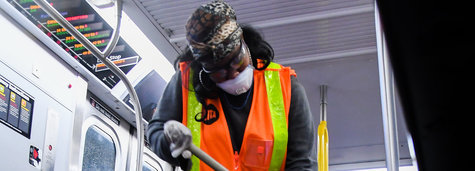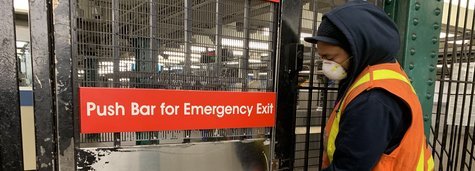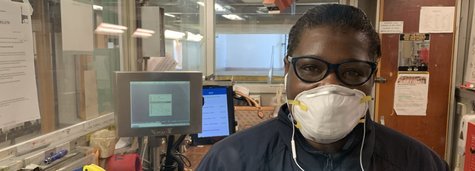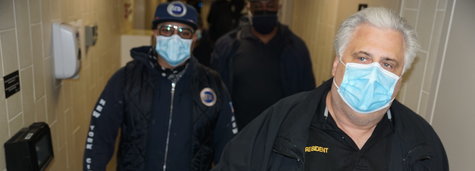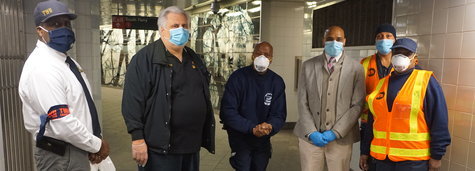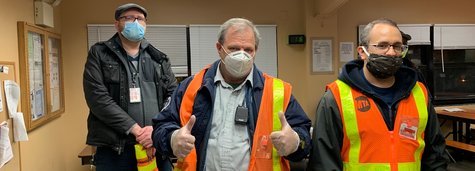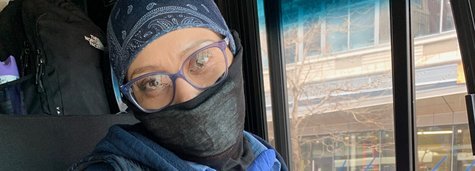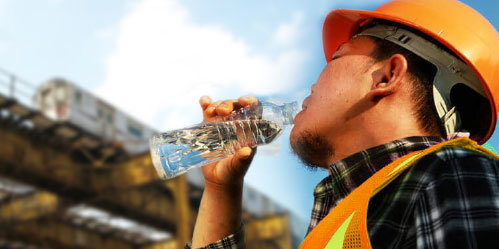An Alert from Your Safety Team

Working in the heat is not safe. Your body builds up heat when you work and sweats to get rid of it. Too much heat can make you tired, hurt your job performance, and increase your chance of injury. When the temperature changes quickly, you need time for your body to get adjusted to the heat. Be extra careful early in the summer when hot spells begin. Download Flyer |
You have the right to a safe &
|
||||||||||
|
|
Heat Exhaustion
| What are the symptoms? | |
| • Headaches • dizziness or light-headedness • weakness • mood changes such as irritability, confusion, or the inability to think straight |
• upset stomach • vomiting • decreased or dark-colored urine • fainting or passing out and pale, clammy skin. |
| What should you do? | |
|
|


